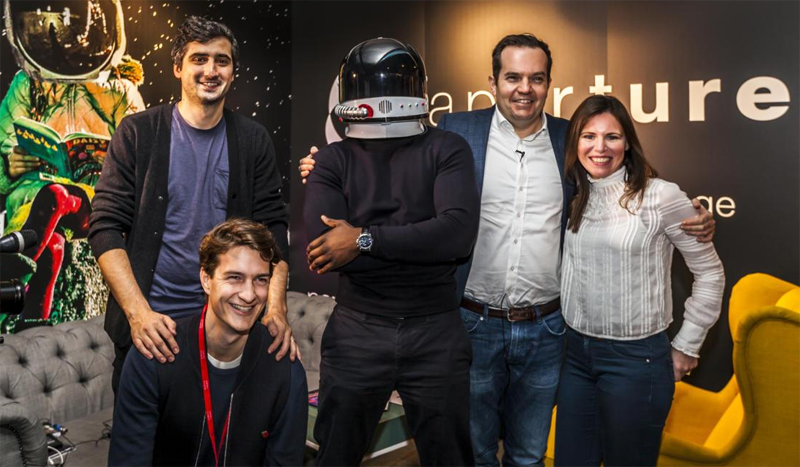
We sat down with Ben Robinson, Practice Head, Marketing and Strategy at Pangea about how they help companies build, scale and go to market in a quick and effective way at FinTECHTalents 2019.
What is the current state of FinTech?
If you think about the big change that’s happened from the Industrial Age to the digital age, fundamentally when we look through all the noise what’s really happening is we’re moving from a world that was supply constraint to one that is demands constraint.
What’s scarce in our new world is our attention. I think one of the things that’s interesting, or most interesting about all digital age businesses is, how they acquire customers, their route to customer. If you think about unit economics in the digital age versus the industrial age, we’ve seen a big reduction in the cost-to-serve, but we’ve seen a big spike in the cost of customer acquisition because it’s so much harder to reach us because we’re time constrained, we’re attention constrained. I think one of the things that people should be talking about more when they think about unit economics in FinTech is how we acquire the customer.
That’s why I think sometimes it’s easier to embed FinTech in consumer channels than trying to create new FinTech brands that tries to create a new work to market and even to customers.
But another way to look at it is to say: When you look at traditional banking, they owned distribution, because they had the branches. It’s very difficult to get new entrants because you couldn’t go directly to consumer. Where they used to compete was on economies of scale. It was, how do you spread the fixed cost of branches, expensive computer equipment, across massive volumes of customers. That equation has turned on its head because what matters today is how do you use the fact you’ve got massive customer numbers to trigger network effects.
Take the fact that we’ve got ubiquitous computing and networked consumers, and take that new paradigm, and make your product better because it’s got so many connected consumers.
That’s why, in the work that we do, we’re looking at helping trigger those network effects through marketplace type business models. If it’s a direct consumer model or the model we like a lot which is a sort of B to B to C player is what we call systems of intelligence. So, systems that sit across multiple consumer-facing businesses and help draw insight from all of their data. [In order to] take contributed data from lots of different sources, lots of different businesses and then they mash that up – you generate intelligence that can be used across that network.
As a B2B model we like that, as a B2C model we like digital banks, we like businesses that have network effects.
What exactly does Pangea do?
At the moment Pangaea has two businesses and I think it will have more over time. At the moment it has two business. One is Aperture, which is the business that I work mainly in, which is where we do strategy consulting. We’re helping companies to build and launch new digital era business models. We work a lot with challenger banks, starting new challenger banks and what we’re doing there is we’re helping them to design the business. Sometimes we have them to raise money for that business, but most of the time we have them to build the business model. So, to design it in a way that will trigger demand side economies of scale. So, leveraging the fact that what matters today is using the connectedness of your customer to create a more valuable proposition the more customers you have. We design and build those kinds of business models.
Once we’ve done that then they move into the addressable market with Pangea. What Pangea does is it works with companies as they go to market. It’s helping them to scale marketing and sales. I’ll give you a typical example: if you’re a B2B enterprise software company, you might have launched in one company, you might have decent product market fit, you might have raised money. But then suddenly you want to go international and that’s a very difficult thing to do, particularly at speed. You’ve got to start up new entities, you’ve got to find offices, you’ve got to find great people and all those things take time.
What we do is we offer a faster route to scaling, go to market. Because we have offices everywhere. We have hundreds of people that we can plug into your organization and they’re the best of the best. If you want the best salespeople, the best marketing people, we can hire them on your behalf. They work exclusively for you but you know they’re ready to go within days.
A sales service but also marketing service, we bring the best disciplines from marketing, we apply them to your business things that a lot of companies don’t do well. When people think about precision marketing sometimes, they equate that with really targeted digital marketing, but we actually think precision marketing is much more around deal-based marketing. Marketing to the right people, when you’re into a big deal. We think it’s more about CSO marketing, which is how do you and I influence the people that will ultimately be the key decision-makers when I go into a big account. That’s more where we think about precision marketing, we’re experts in product marketing, content marketing, sales enablement. These are disciplines where it’s quite difficult to find really good people. What we do is we have those great people and we can afford to hire them and make them affordable to a FinTech company by sharing the cost across more than one client.











